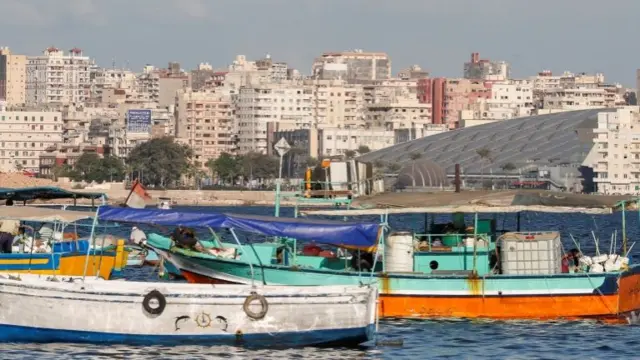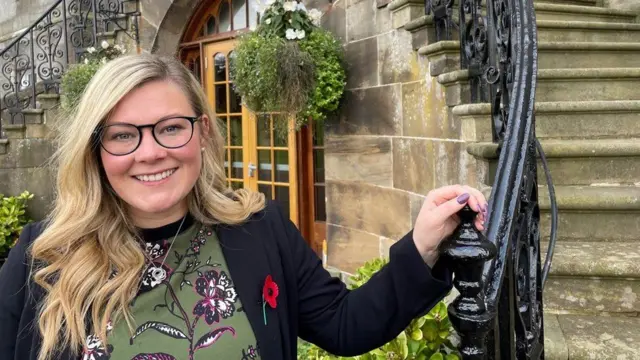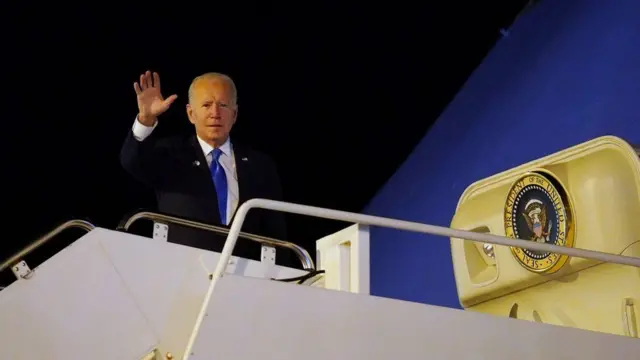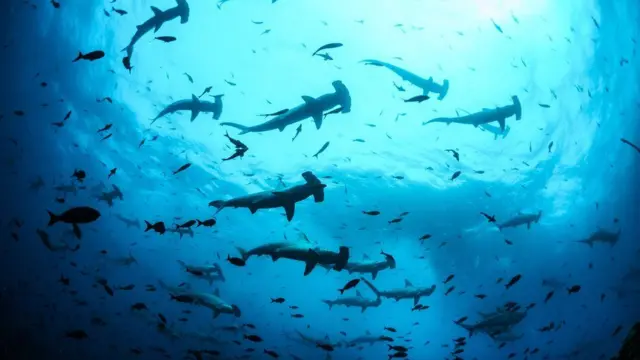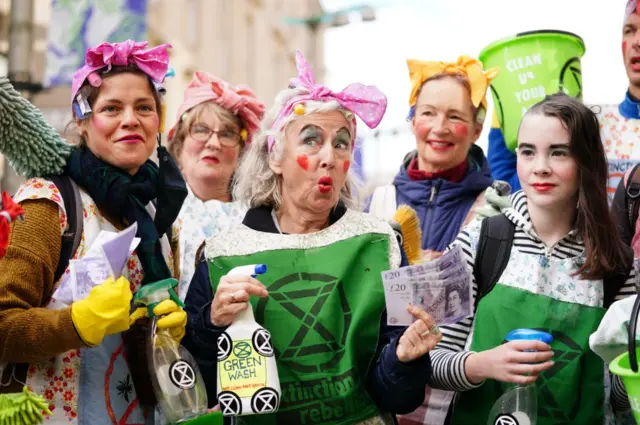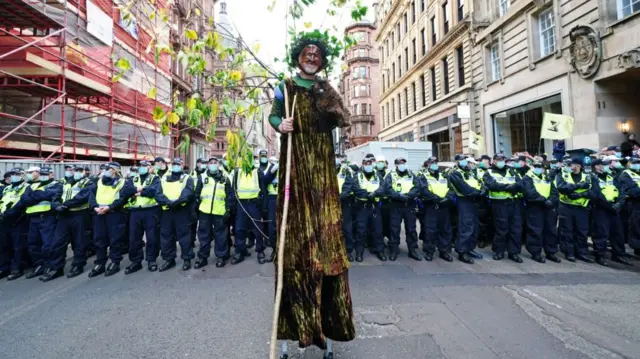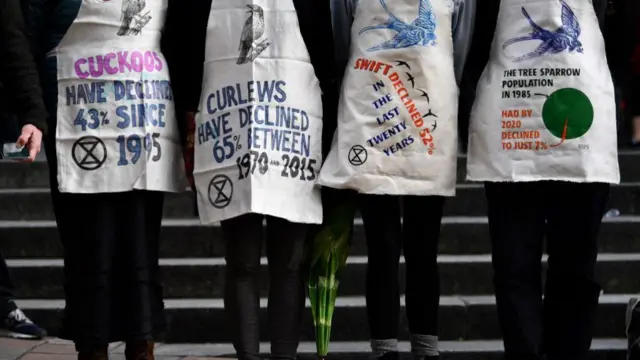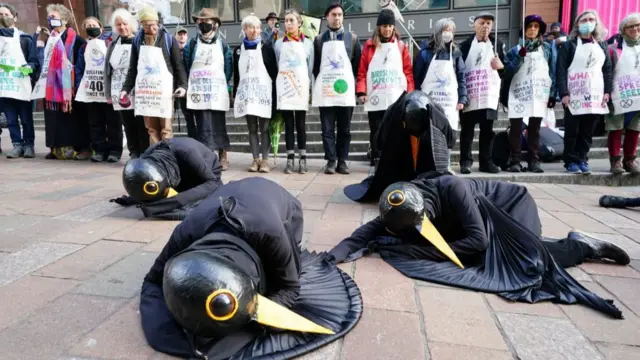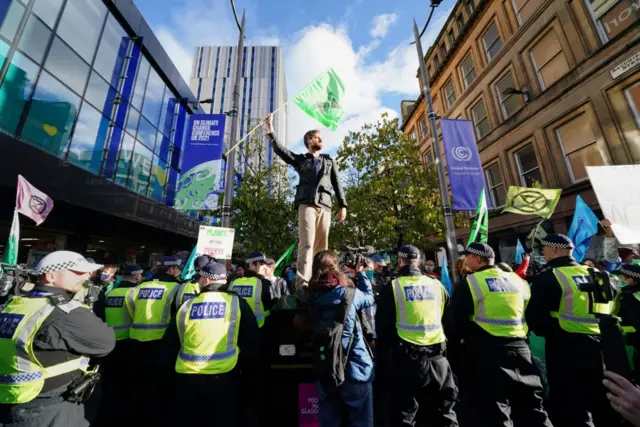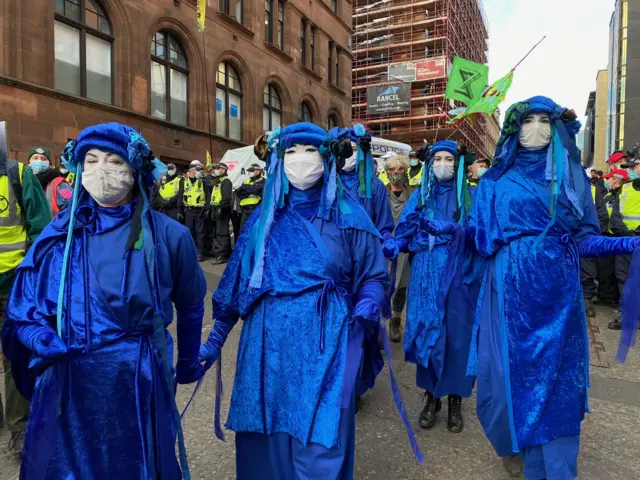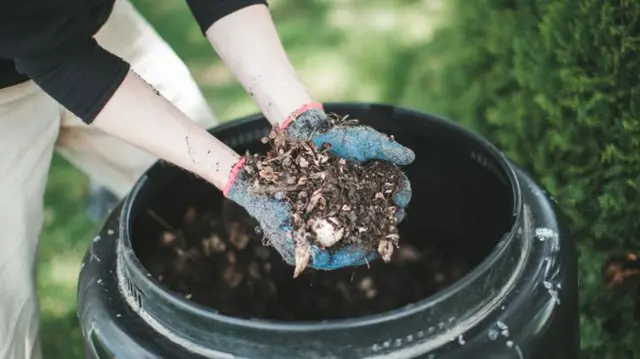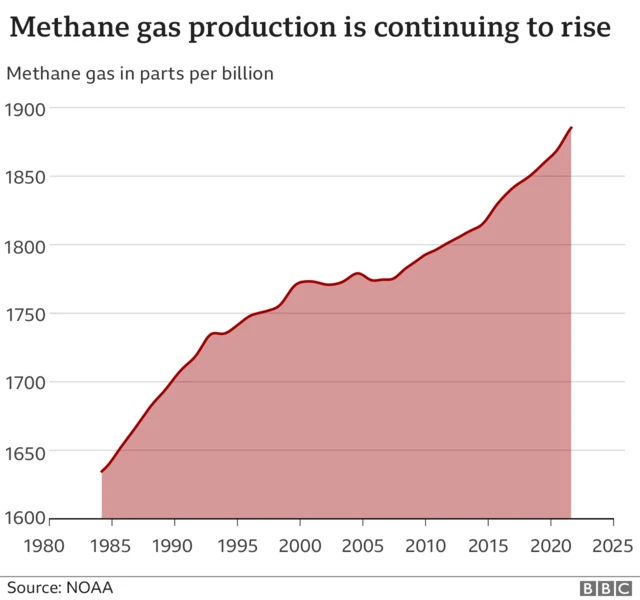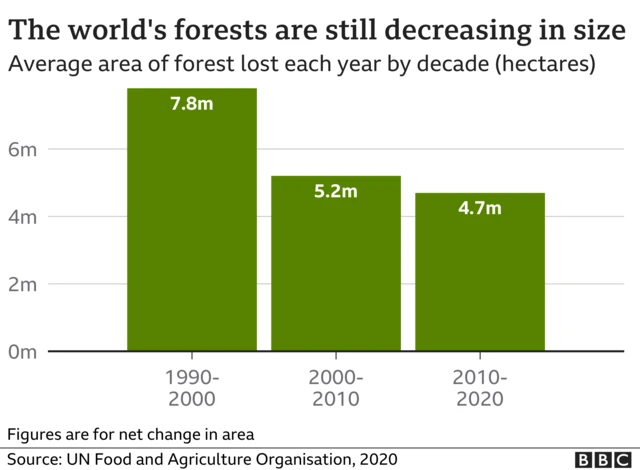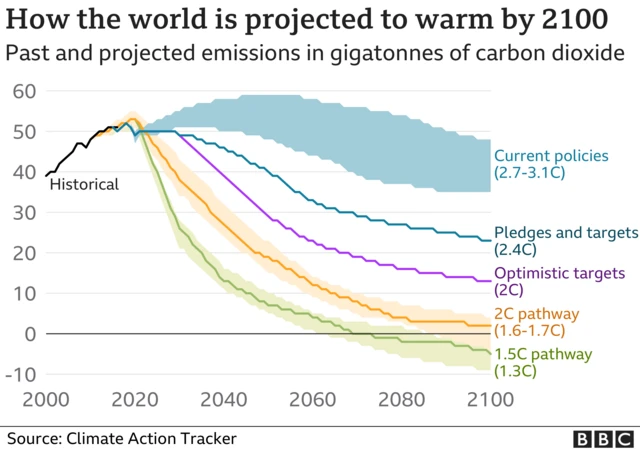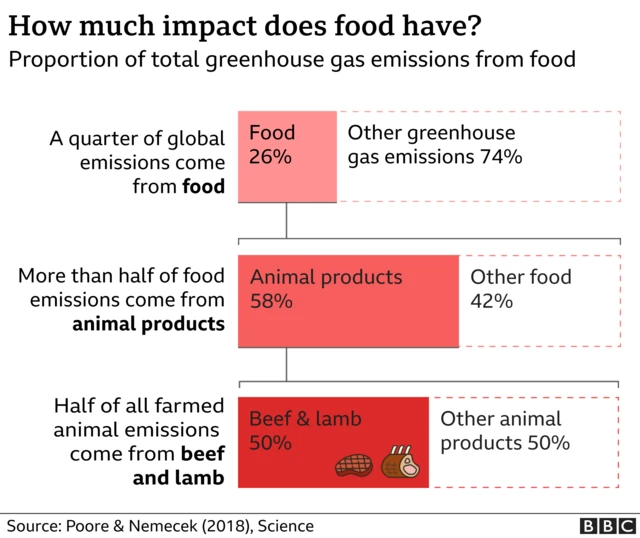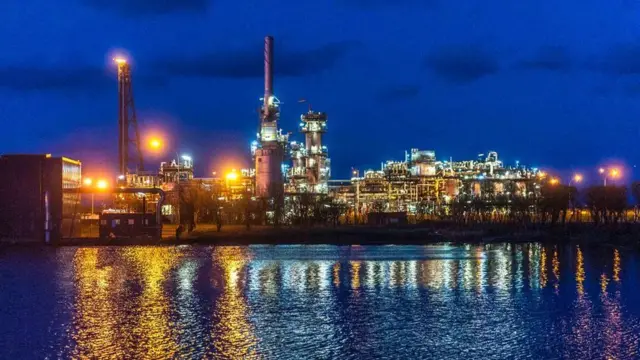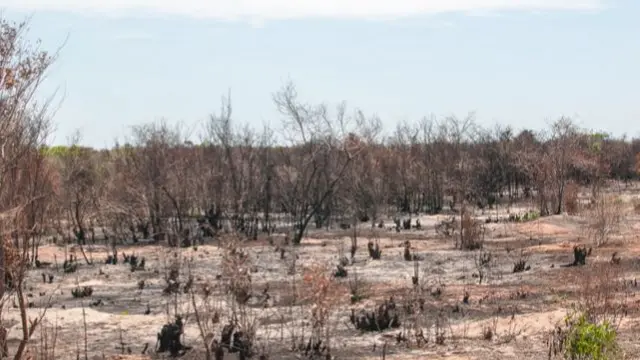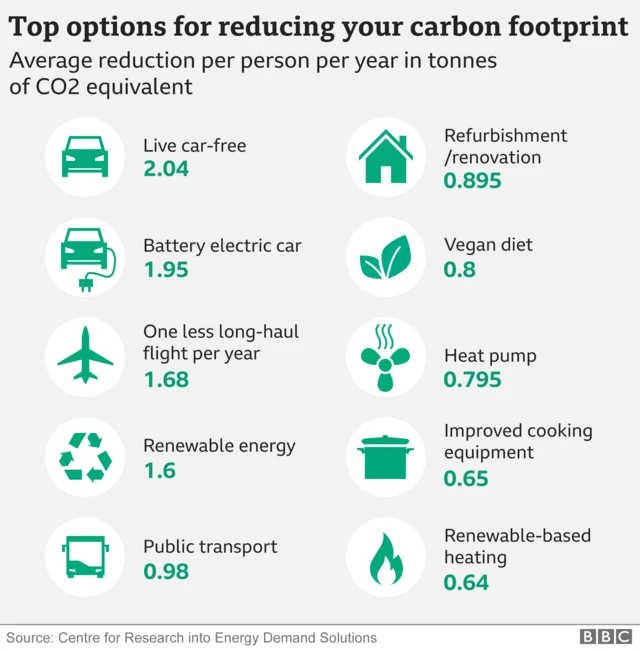That's all from us...published at 17:25 GMT 3 November 2021
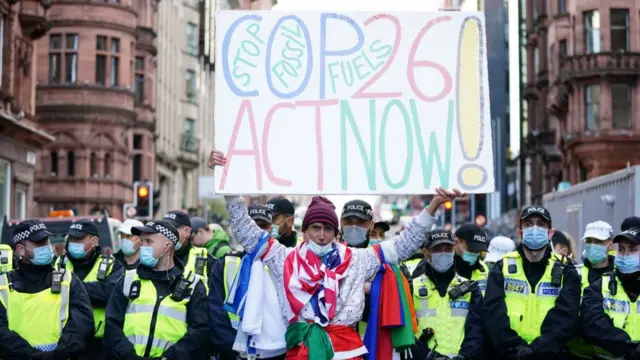 Image source, PA Media
Image source, PA MediaThanks for joining our live coverage of day four of the COP26 climate conference. We'll be back tomorrow morning, when the focus turns to the energy industry. Here's a reminder of the day's developments:
- The focus of the first Wednesday of the conference was on finance and UK Chancellor Rishi Sunak kicked off proceedings with a promise to "rewire" the global financial system to be greener
- Plans include forcing UK firms to show how they intend to hit climate change targets
- Sunak also said that institutions controlling $130tn of assets had agreed to meet the 1.5C target for global warming
- While he reaffirmed the G20's commitment to raising $100bn a year to help poorer countries tackle climate change, the group of Least Developed Countries say a delay to hitting the target is unacceptable and the figure falls short of what they need
- Leading sports organisations including FIFA , the Premier League and the International Olympic Committee have agreed to reach net zero emissions by 2040
- Protests have been held in Glasgow with Extinction Rebellion taking aim at companies it accuses of "greenwashing" - two arrests have been made, Police Scotland said
Today's live page was written by George Bowden, Paul McLaren and Doug Faulkner. It was edited by Hamish Mackay, Claudia Allen and Kevin Ponniah.




